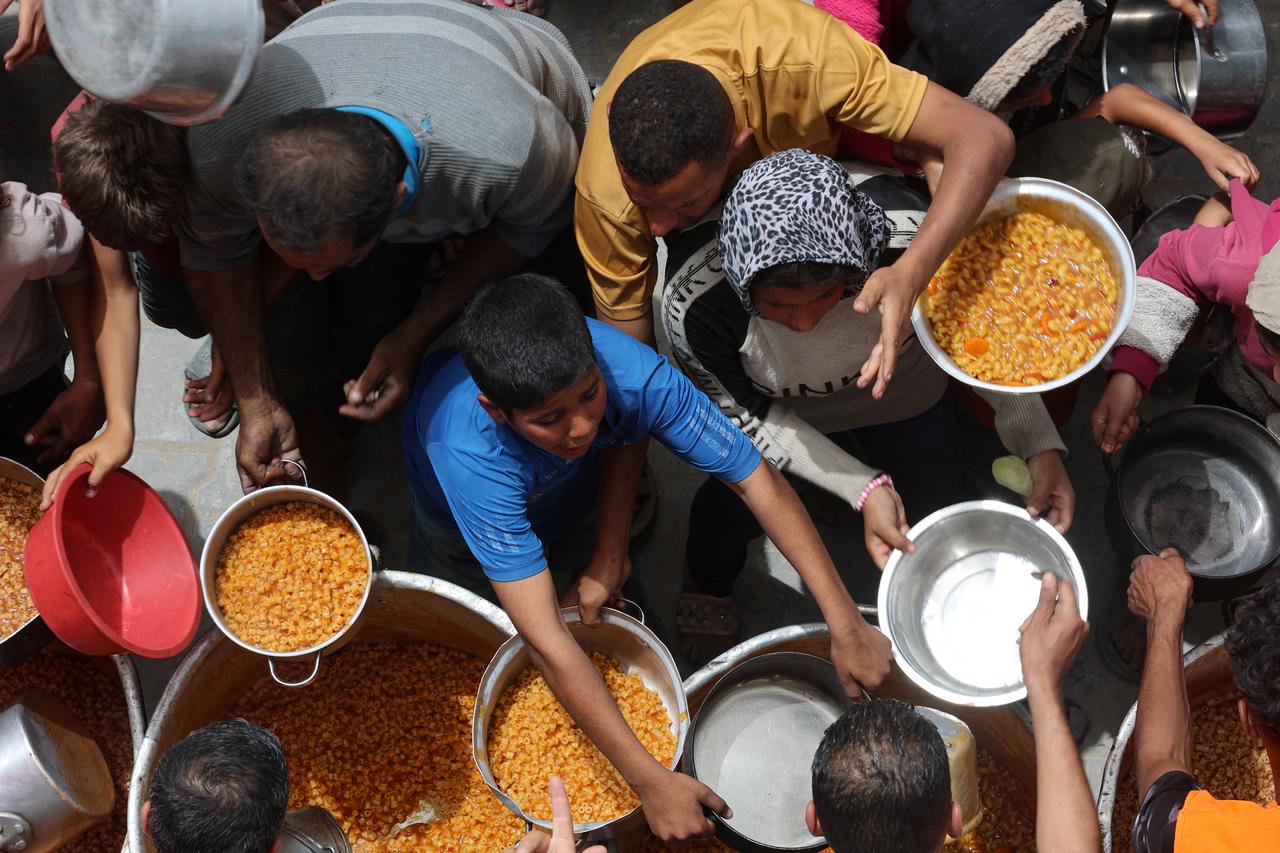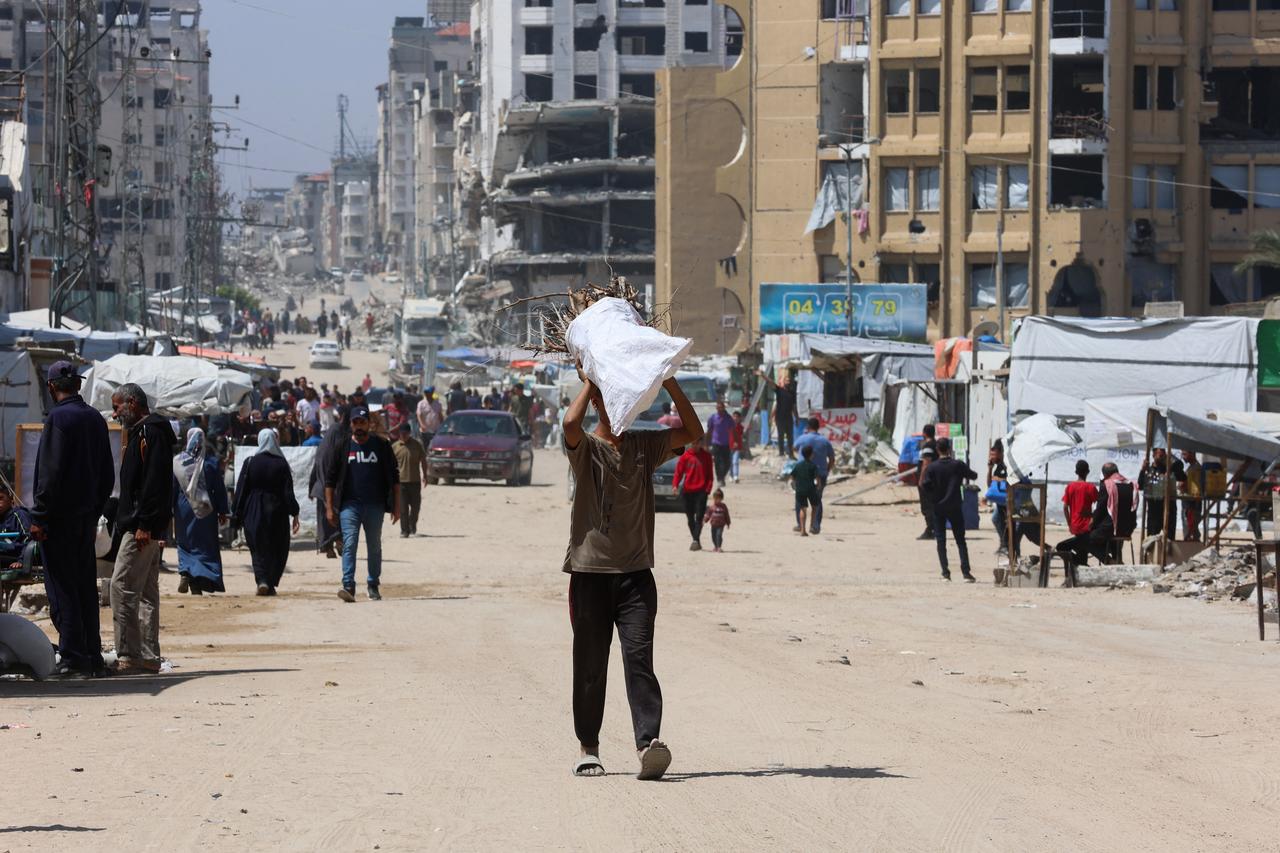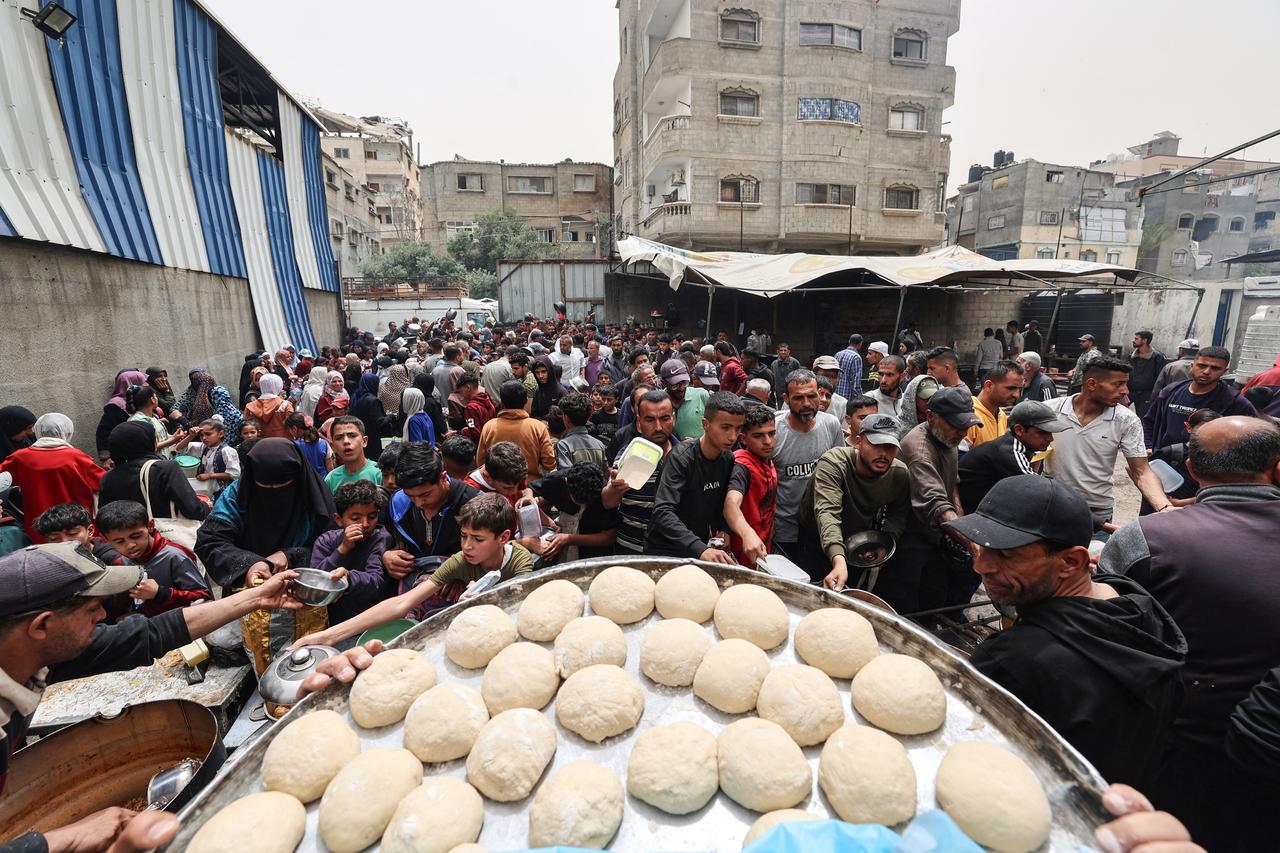
The United States, Israel and representatives of a new international foundation are nearing an agreement on how to resume humanitarian aid delivery to Gaza without it being controlled by Hamas, according to two Israeli officials and one U.S. source familiar with the plan, speaking to Axios.
The news comes after Israel suspended all humanitarian aid deliveries to Gaza, including food, water and medicine, following the collapse of a cease-fire deal two months ago. This has worsened the ongoing humanitarian crisis in the region.
According to U.N. aid agencies, food supplies in Gaza will run out within days, while Israeli officials claim they will be depleted in three to four weeks. The halt in aid deliveries, combined with continued Israeli airstrikes, has displaced thousands of Palestinian civilians, worsening the already dire conditions in Gaza.
Israel's actions have resulted in widespread looting and lawlessness, as residents face shortages of basic necessities. U.S. President Donald Trump emphasized the importance of addressing Gaza's needs, stating that he urged Israeli Prime Minister Benjamin Netanyahu to allow the entry of food and medical supplies into the besieged territory.

Israeli officials claim that during previous aid deliveries, Hamas allegedly took control of most of the incoming supplies. These officials say Hamas used some of the aid revenue to fund its military wing and distributed portions to the population, thereby maintaining its grip on governance in Gaza.
In response, the new aid system aims to cut Hamas off from these resources and reduce the population's reliance on the group. By doing so, Israel hopes to weaken Hamas and restore the flow of aid to the people of Gaza without it falling into the hands of the group.

In recent weeks, Israeli and U.S. officials, alongside representatives from an international humanitarian foundation and private companies, have been discussing a new mechanism for aid delivery. This plan aims to create an alternative framework that aligns with both U.S. and Israeli objectives while ensuring humanitarian assistance reaches those in need.
According to the sources, the new system will be spearheaded by humanitarians with an advisory board of prominent international figures. Aid will be funneled through an internationally governed foundation supported by state and philanthropic entities. Several aid distribution compounds will be built in Gaza, where civilians will receive one package per family each week, sufficient for seven days.
Israel has committed to funding the massive infrastructure required to establish these "Secure Aid Distribution Sites." A U.S. private company is expected to handle logistics and security at the sites, with the Israeli army providing security for the broader area but not directly involved in aid delivery.